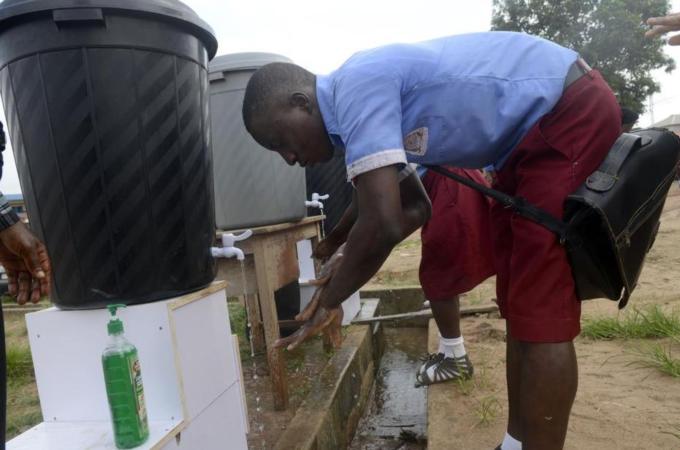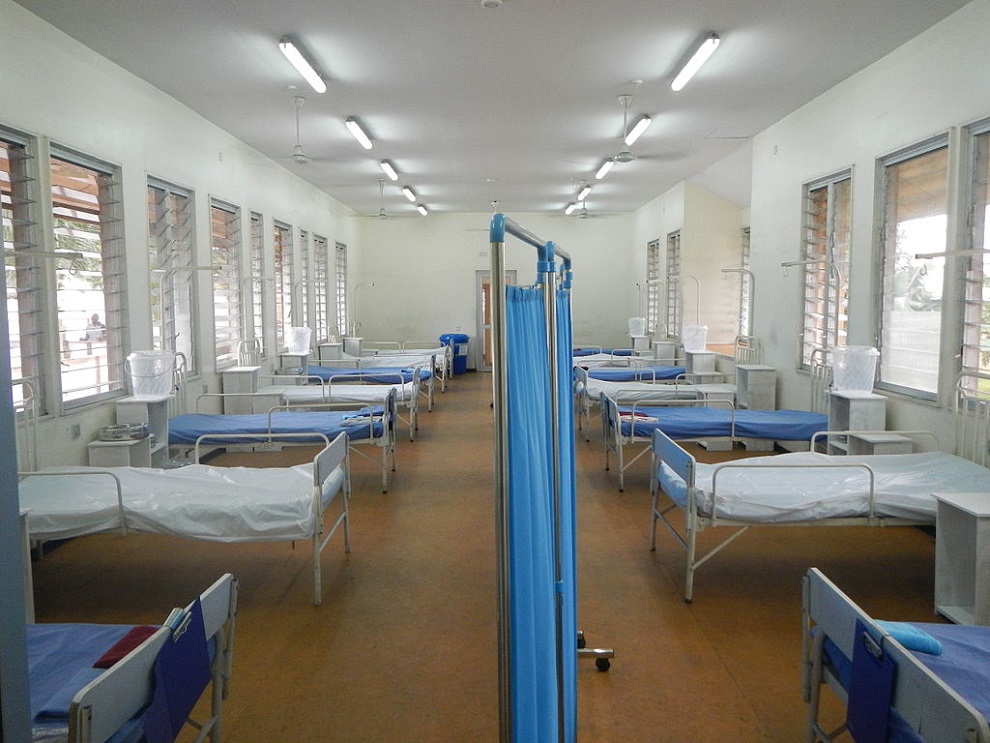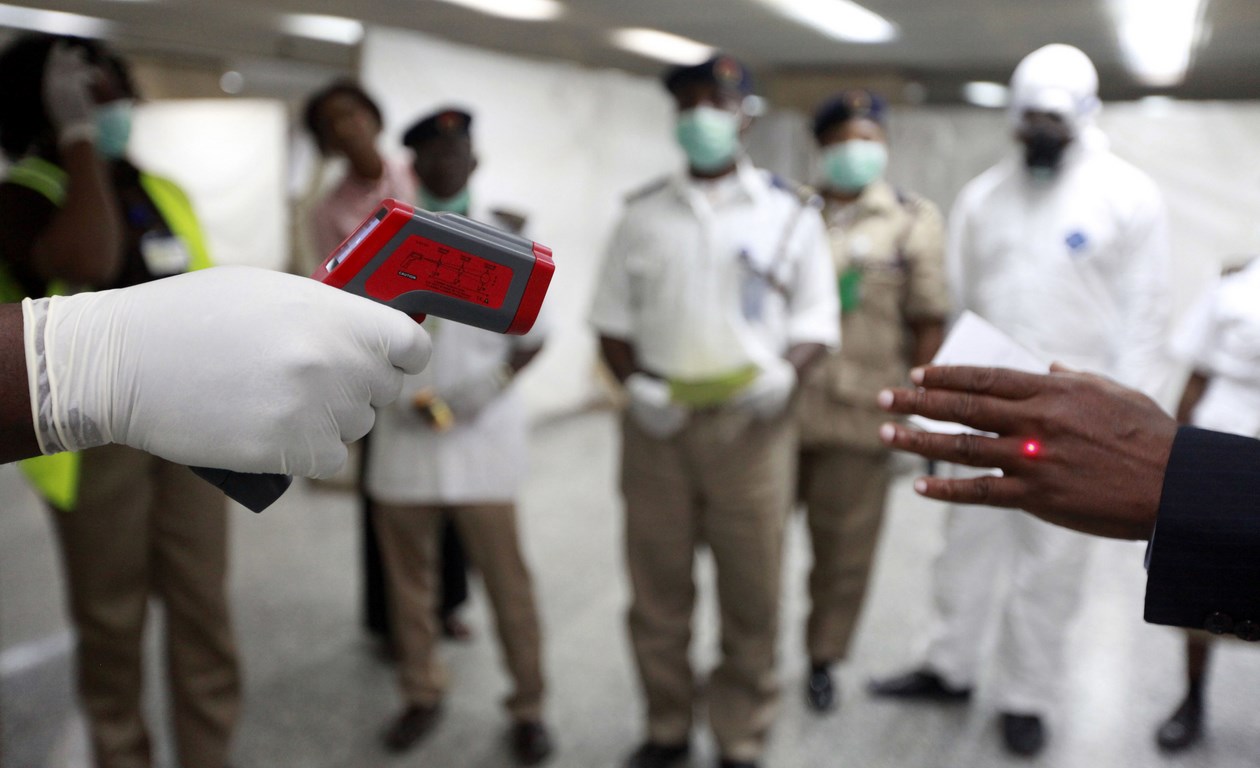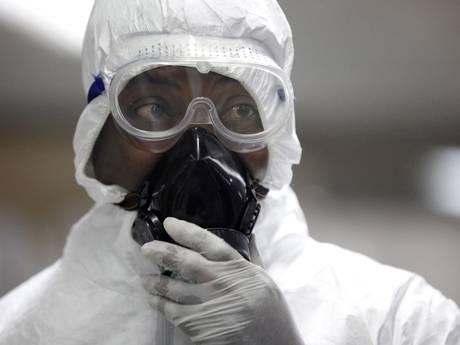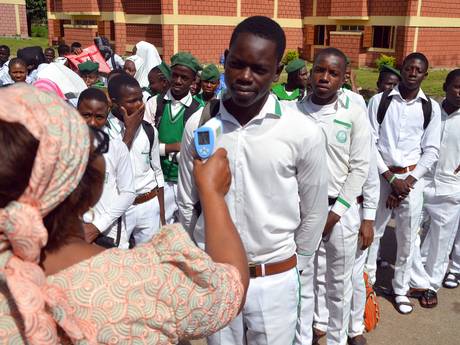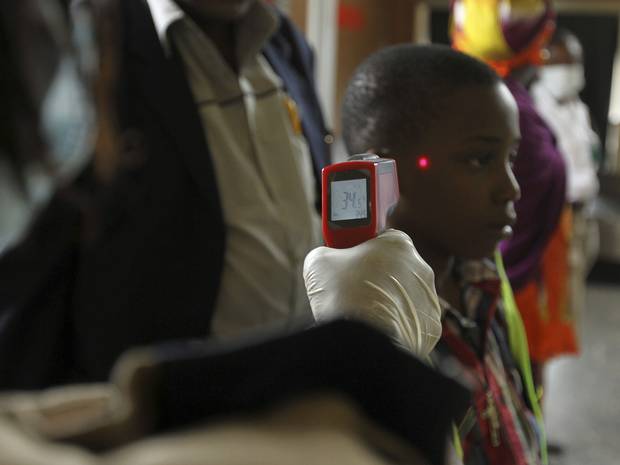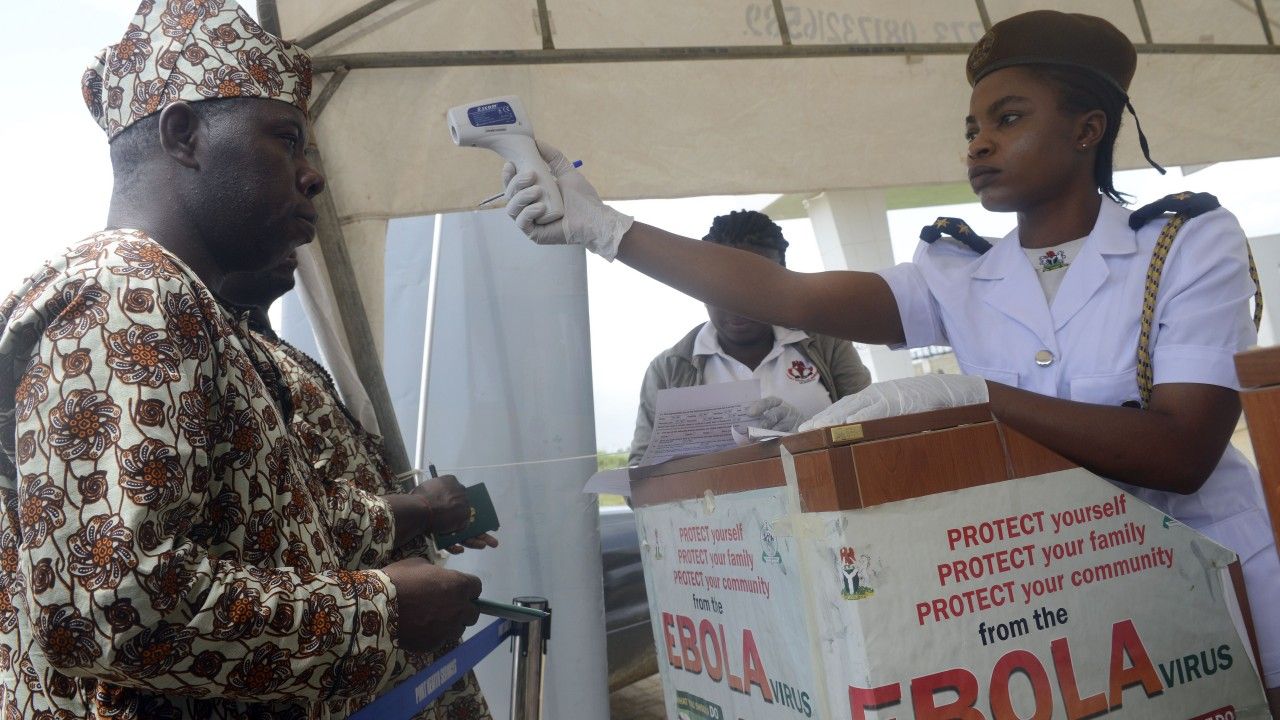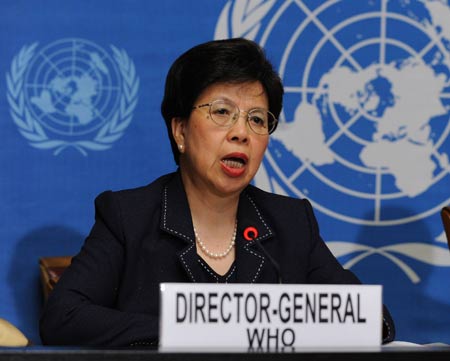Nigeria Is Ebola-Free. Here's How The African Country Did it
Nigeria, Africa's most populous nation, is officially free of Ebola infections. Here's how the African country contained the outbreak and why every country needs to take notice.
After 42 days without a new case of Ebola in Nigeria that has claimed the lives of more than 4,500 people in West Africa mainly in Liberia, Sierra Leone and Guinea the World Health Organisation declared Africa's most populous nation Ebola-free on Monday
Rui Gama Vaz, a World Health Organization representative in Nigeria, and the country’s health minister, Dr. Onyebuchi Chukwu, discussed the news that the country was free of the Ebola virus
Image via ReutersThe announcement came 42 days after the last reported infection in Nigeria’s outbreak, twice the maximum incubation period for the Ebola virus.
That's the standard length of time required for declaring the end to an outbreak, since it's twice the maximum 21-day incubation period for the virus. It's an incredible achievement — one that should assuage fears and show that Ebola can be contained.
 io9.com
io9.com
Moreover, it's proof that developing nations, with sufficient support from the international community, are fully capable of dealing with the epidemic.
 io9.com
io9.com
The Nigerian response was upheld by the W.H.O. as an example of the measures other countries can take to halt the spread of Ebola
Nigerians took the threat seriously with officials encouraging improved sanitation and basic hygiene
Image via aljazeera.com“Nigeria is now free of Ebola,” WHO representative Rui Gama Vaz told a news conference in the capital Abuja, Reuters reported. “This is a spectacular success story … It shows that Ebola can be contained but we must be clear that we have only won a battle. The war will only end when West Africa is also declared free of Ebola.”
washingtonpost.comIn all, eight people died out of 20 confirmed cases in Nigeria's biggest city, Lagos, and the oil hub of Port Harcourt, while nearly 900 people were monitored for signs of the disease.
aljazeera.comAccording to reports, Nigeria's outbreak started in back in July, when a Liberian-American development consultant, Patrick Sawyer, collapsed in the arrivals hall of Lagos airport
By the time he was diagnosed with Ebola, he had exposed his 72 fellow plane passengers, the airport and hospital patients to the highly infectious disease. The conditions seemed ripe for it to spread through the densely-populated city of 21 million people and beyond, through the workers travelling in and out of Lagos every day and international travellers flying from its airport around the world.
But Nigeria was ready – Ebola had already killed more than 400 people and was spreading through Sierra Leone, Guinea and Liberia. Knowing the potential of Mr Sawyer’s symptoms, the clinic caring for him refused to let him leave despite alleged pressure from the Liberian ambassador.
How Nigeria controlled the spread of Ebola and finally rid itself from the deadly disease is not an accident. The African country was ready for the disease and it followed some "best practices" that should now be employed elsewhere. Read on...
What accounts for this great news? To a large extent, as W.H.O. points out, the answer is straightforward: the country's strong leadership and effective coordination of the response.
A Nigerian health official uses a thermometer on a worker at Murtala Muhammed International Airport in Lagos, Nigeria on 4 August 2014
Image via africatopsports.comThe Nigerian response to the outbreak was greatly aided by the rapid utilization of a national public institution (NCDC) and the prompt establishment of an Emergency Operations Centre, supported by the Disease Prevention and Control Cluster within the WHO country office.
Another key asset was the country’s first-rate virology laboratory affiliated with the Lagos University Teaching Hospital. That laboratory was staffed and equipped to quickly and reliably diagnose a case of Ebola virus disease, which ensured that containment measures could begin with the shortest possible delay. In addition, high-quality contact tracing by experienced epidemiologists expedited the early detection of cases and their rapid movement to an isolation ward, thereby greatly diminishing opportunities for further transmission.
The WHO credits Nigeria for its strong leadership and effective coordination of the response: The most critical factor is leadership and engagement from the head of state and the Minister of Health. Generous allocation of government funds and their quick disbursement helped as well. Partnership with the private sector was yet another asset that brought in substantial resources to help scale up control measures that would eventually stop the Ebola virus dead in its tracks.
 io9.com
io9.com
As per W.H.O., Health and government officials fully appreciated the importance of communication with the general public. They rallied communities to support containment measures.
A Nigerian health official wearing a protective suit waits to screen passengers at the arrivals hall in Lagos
Image via independent.co.ukHouse-to-house information campaigns and messages on local radio stations, in local dialects, were used to explain the level of risk, effective personal preventive measures and the actions being taken for control. On his part, the President reassured the country’s vast and diversified population through appearances on nationally televised newscasts.
Traditional and religious community leaders were engaged early on and asked to play a role in sensitizing the public. Finally, the full range of media opportunities were exploited, including social media and televised facts about the disease delivered by Nigerian celebrities.
 io9.com
io9.com
Nigeria, which for some time now has been running one of the world's most innovative polio eradication campaigns, repurposed its successful polio strategies for Ebola control
A secondary school principal checks a student's temperature for Ebola symptoms during an assembly in Abuja
Image via independent.co.ukWhen the first Ebola case was confirmed in July, health officials immediately repurposed polio technologies and infrastructures to conduct Ebola case-finding and contact-tracing. The use of cutting-edge technologies, developed with guidance from the WHO polio programme, put GPS systems to work as support for real-time contact tracing and daily mapping of links between identified chains of transmission.
The awareness campaigns that worked so well to create public acceptance of polio immunization were likewise repurposed to encourage early reporting of symptoms, backed by the message that early detection and supportive care greatly increase an Ebola patient’s prospects of survival.
Screening at borders, and a refusal to stop air travel
Instead of panicking and banning air travel, Nigerian health officials screened all arriving and departing travellers by air and by sea in Lagos and Rivers State. The average number of travellers screened each day reached a peak of more than 16,000.
 io9.com
io9.com
While it has been declared Ebola-free, vigilance still remains high
Nigerian government and health officials, including staff in the WHO country office, are well aware that the country will remain vulnerable to another imported case as long as intense transmission continues in other parts of West Africa. The surveillance system remains on guard, at a level of high alert. Moreover, the country’s success, including its low fatality rate, has created another problem that calls for a high level of alert.
Many desperate people in heavily affected countries believe that Nigeria must have some especially good – maybe even “magical” – treatments to offer. WHO’s Dr Vaz and others see a real risk that patients and their families from elsewhere will come to Nigeria in their quest for first-rate, live-saving care.
Based on the experience gained from the response in the 2 affected States, the national preparedness and response plan has also been revised and refined. This strengthened response plan further boosts confidence that Nigeria’s well-oiled machinery has a good chance of working miracles again should another traveller – by land, air or sea – carry the Ebola virus across its borders again.
How Nigeria battled Ebola has a very clear message, as noted by Dr. Margaret Chan, the W.H.O. Director-General:
“If a country like Nigeria, hampered by serious security problems, can do this – that is, make significant progress towards interrupting polio transmission, eradicate guinea-worm disease and contain Ebola, all at the same time – any country in the world experiencing an imported case can hold onward transmission to just a handful of cases.”

